
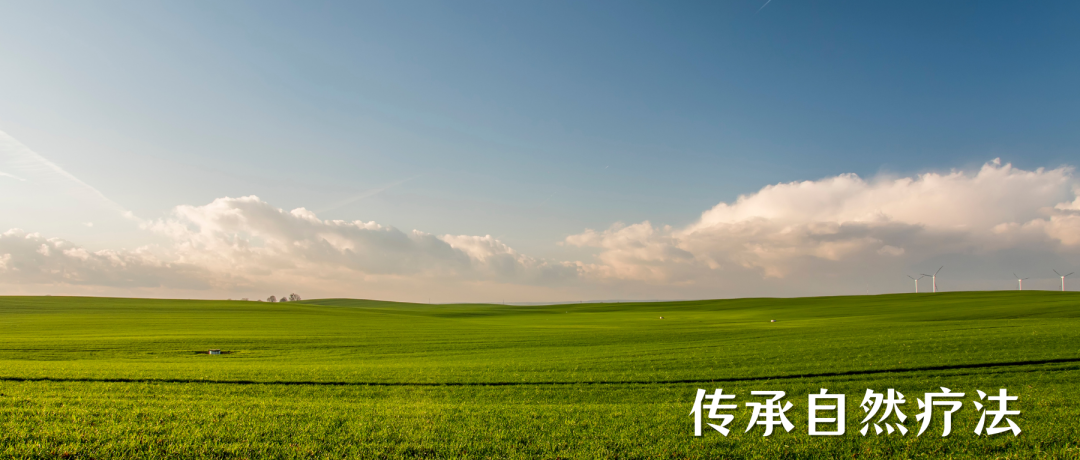
Traditional Chinese Medicine (TCM) believes that the five organs house the five spirits, and eating is akin to offering sacrifices to our “five organ spirits”.
But do you know why the “five organs” are referred to as “temples”? The concept of the five organs housing spirits may seem mystical, yet it is grounded in evidence. The Ling Shu states: “When the blood and qi are harmonious, the nutritive and defensive qi are unobstructed, the five organs are complete, the spirit resides in the heart, and the soul and po are fully present, then one becomes a person.”
This means that only when both form and spirit are present can a person be considered healthy and vibrant.
Here, form refers to the five organs: Heart (Xin), Liver (Gan), Lung (Fei), Spleen (Pi), and Kidney (Shen); while spirit refers to the psychological aspects housed within these organs: Shen (神), Hun (魂), Po (魄), Yi (意), and Zhi (志), collectively known as the “five intentions” in TCM.
The “five intentions” are not mere abstract concepts; they have a material basis, which is essence (jing), stored within the five organs.

What is the theory of “five organs housing spirits”?
TCM posits that “the heart is the sovereign organ, from which the spirit emerges.” The heart has the primary function of governing spiritual activities in the body, and modern medicine often treats brain diseases by addressing heart issues. However, TCM also speaks of the “five spirits of the organs,” asserting that spiritual activities are governed by the five organs, specifically: “Heart houses the Shen, Lung houses the Po, Liver houses the Hun, Spleen houses the Yi, Kidney houses the Zhi,” collectively termed “five organs housing spirits.” What do the spirits housed by the five organs signify, and how are they related to the organs themselves?
The five spirits: Hun, Shen, Yi, Po, and Zhi can be understood simply: Shen primarily refers to the unpredictable nature of spiritual activities, Hun pertains to the subconscious, Po relates to sensory perceptions such as temperature and pain, Yi refers to thought processes and inspiration, and Zhi denotes memory and willpower. All these are connected to brain function. The five spirits are not entirely independent; they are closely linked and work together to maintain normal mental states.
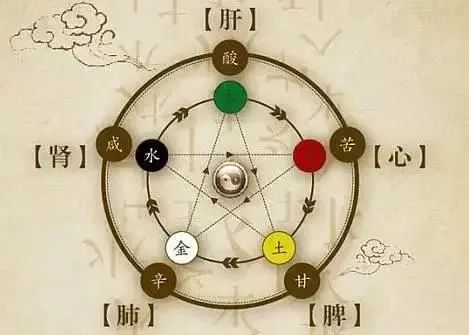
(1) Shen and Heart:
In TCM, the term “Shen” is broad, encompassing all human spiritual and psychological activities. Sensory perceptions, cognitive processes, memory, and the generation of thoughts are attributed to the heart, termed “the heart houses the Shen.” This is the foundation and premise for our activities of perception, thought, will, and emotion. Thus, the heart’s function permeates the other four spirits, serving as their foundation. In this context, the heart’s spirit is a leader but does not represent a specific entity. However, when the five spirits are considered together, “Shen” refers to the mysterious and unpredictable nature of human spirit and thought. When the heart’s spirit is clear, all our spiritual activities function normally and responsively. Conversely, if the heart’s spirit is unclear, as seen in patients with mental illness or coma, spiritual activity ceases to exist, let alone change.
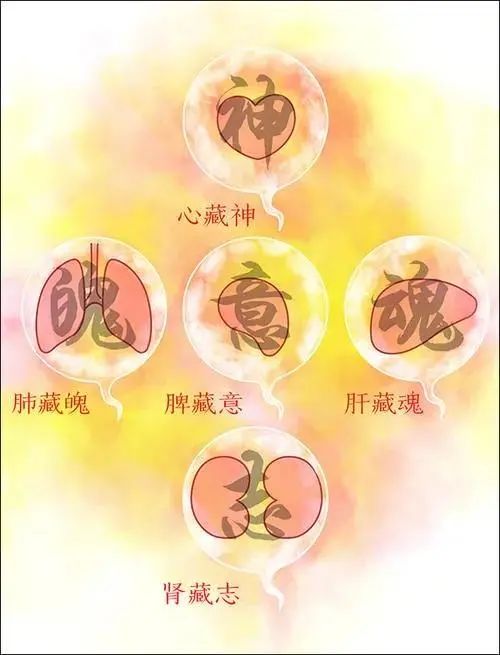
(2) Hun and Liver:
We often hear phrases like “the soul is not at home,” “haunted by dreams,” and “scared out of one’s wits.” Here, “Hun” primarily refers to attention, subconscious, and judgment, and is related to sleep. TCM believes that “the liver stores blood,” and the liver maintains our mental comfort, being regarded as “the general organ, from which strategies emerge.” When liver blood is deficient, the spirit is not nourished, leading to issues such as difficulty concentrating, vivid dreams, talking in one’s sleep, or even sleepwalking.
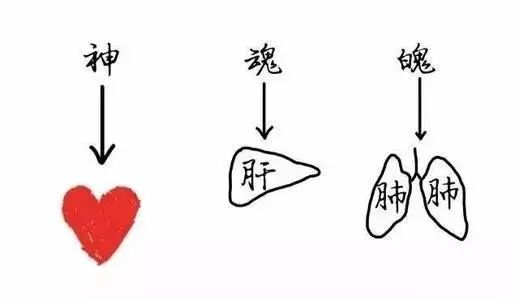
(3) Po and Lung:
Generally, the sensory functions we are born with, such as hearing, vision, and the perception of temperature and pain, are attributed to the Po. TCM holds that the lung governs qi, assists the heart in circulating blood, and oversees the skin and hair. When qi and blood are sufficient and distributed throughout the body, sensory functions are normal.
<br/>
(4) Yi and Spleen:
Yi refers to “thinking, contemplation, intention, and inspiration.” TCM believes that the spleen governs the emotions related to “thinking.” Only through contemplation can intention and inspiration arise. The spleen is the master of the digestive system and the foundation of postnatal essence, which produces qi and blood. Only when the spleen and stomach function well can there be sufficient qi and blood to nourish the brain, leading to clear thinking. If the spleen and stomach are weak, and qi and blood production is insufficient, the brain will lack nourishment, and “Yi” will not function well.
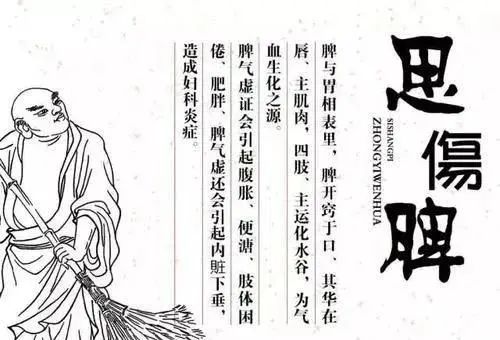
(5) Zhi and Kidney:
Zhi refers to memory and willpower. The brain is the anatomical basis for all emotional activities. As animals evolved, with increasing brain capacity, they became smarter. TCM believes that the fullness of the brain marrow depends on the amount of kidney essence. The kidney stores essence, which can transform into brain marrow. When kidney essence is abundant, the brain marrow is full; when kidney essence is deficient, the marrow sea is insufficient. As we age and kidney essence decreases, the brain gradually shrinks, and memory declines significantly. Therefore, tonifying kidney essence and replenishing brain marrow is also an important method for treating brain diseases.
In summary, TCM views the five organs as a systematic whole. The spiritual activities of a person—Hun, Shen, Yi, Po, and Zhi—belong to the five organs, but the heart is the primary leader. The function of the brain is closely related to the heart, yet also connected to the five organs. For abnormal conditions of spiritual consciousness, thought, and emotional activities, one should not simply attribute them to heart and brain disorders, but should consider treatment from the perspective of the five organs.
“Inheriting Natural Therapy”: Learn Better TCM Knowledge
Recently, many readers have asked us if we are no longer updating. Why can’t they see the latest published content? In fact, we are still pushing content daily, but due to changes in the public account platform’s push mechanism, articles no longer display in chronological order, which has led to some readers not seeing our content in a timely manner.
If you find the content here valuable, please take a moment to:
1. Set “Inheriting Natural Therapy” public account as a star ⭐
2. After reading each article, remember to click “Looking” at the bottom right corner.









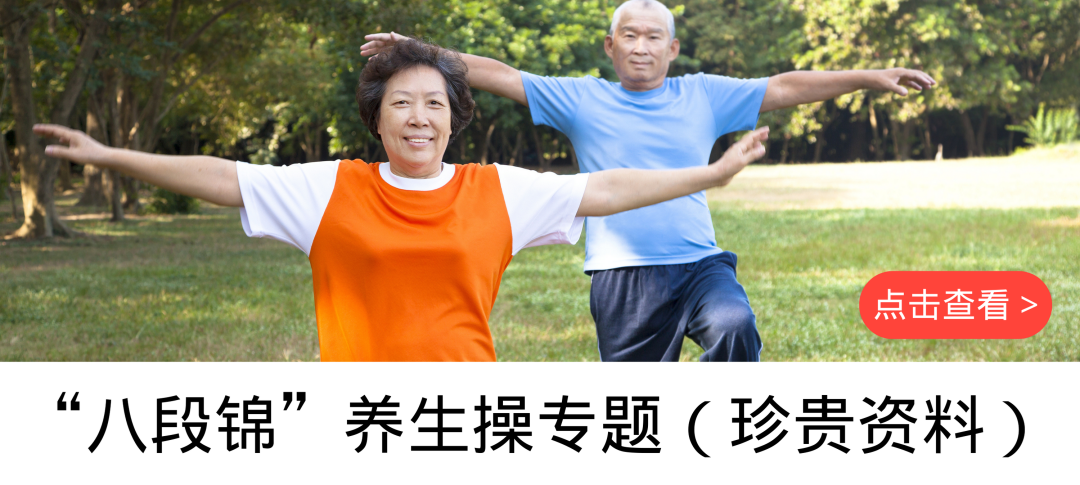
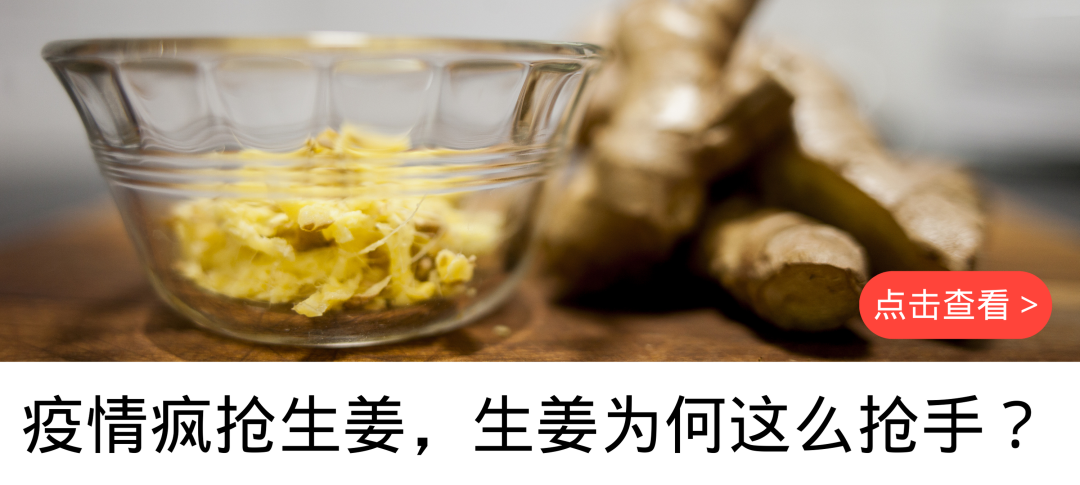
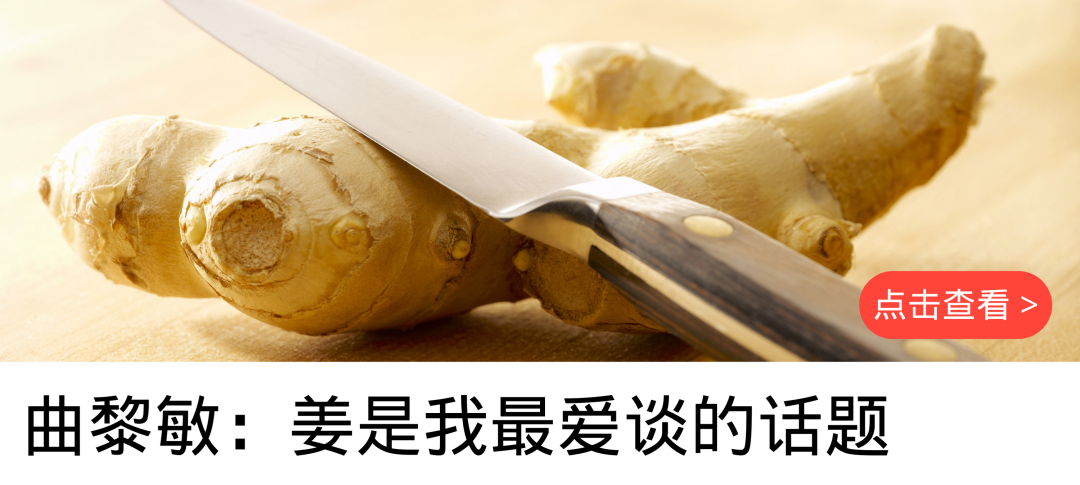
 【Disclaimer】
【Disclaimer】
1. Copyright belongs to the relevant rights holders. If there is any improper use, please contact us for negotiation.2. If the content of the article involves your rights, please leave a message, and we will delete it as soon as possible and apologize;3. Cases and images are selected from the internet, and this public account has not uploaded any videos; links are sourced from Tencent Video;4. The TCM plans and cases mentioned in the article are for reference and learning by professionals only, and should not be used as prescriptions;5. The pharmacies and TCM recommendations mentioned in the article should not be used blindly; this platform does not bear any responsibility for any consequences!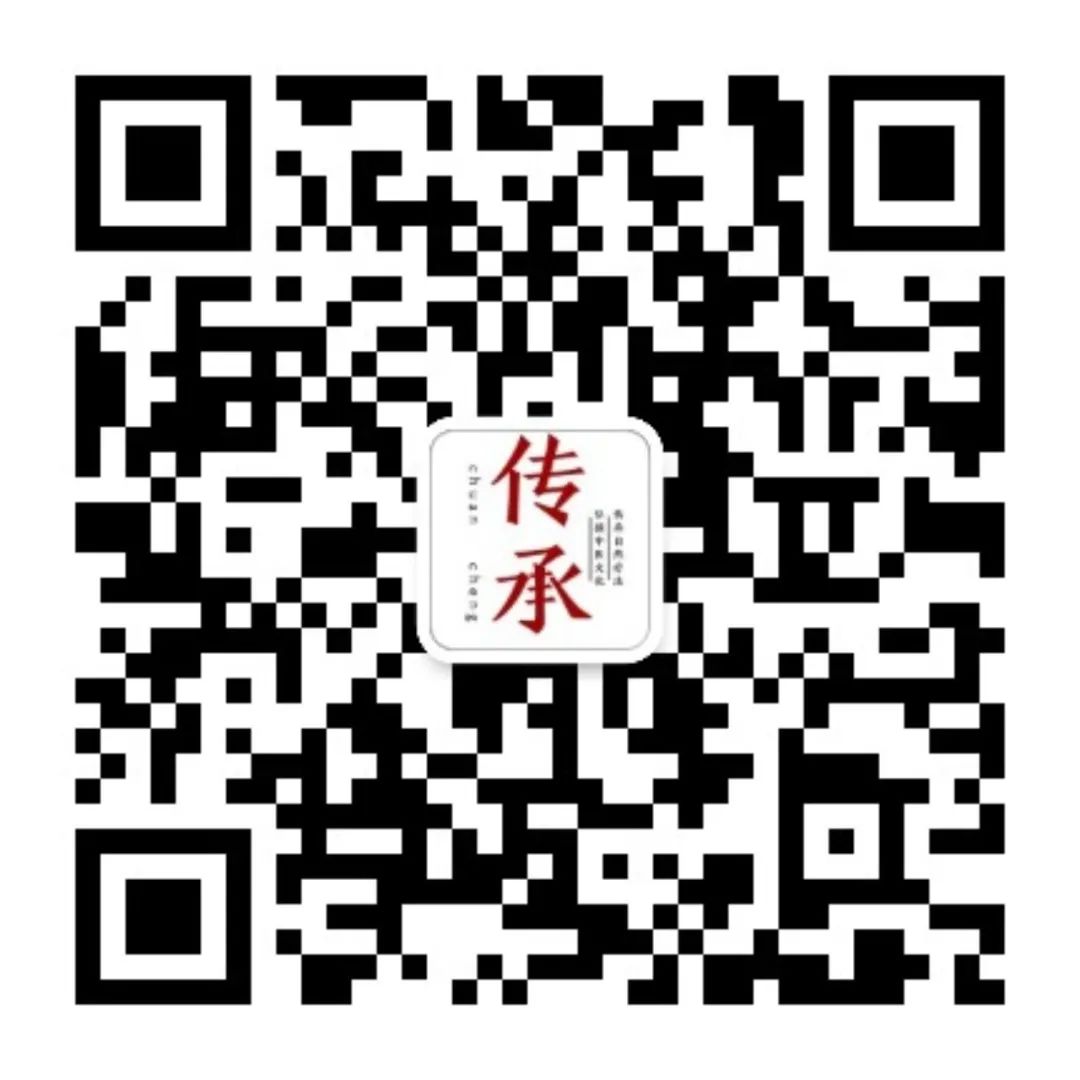 Inheriting Natural Therapy Long press the QR code to follow to see more wonderful articles
Inheriting Natural Therapy Long press the QR code to follow to see more wonderful articles

